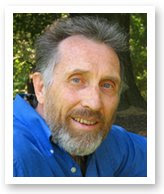- Not everyone who hears voices is mentally ill.
- Lightner Witmer founded clinical psychology at the University of Pennsylvania in 1896.
- A psychologist and psychiatrist are not the same: psychiatrists are physicians who specialize in helping people through medication; psychologists use non-medical means to help people.
- The results of the famous Stanford Prison Experiment in 1971 were so unexpected that Dr. Zimbardo had to discontinue the experiment before it was complete.
- Psychology is a science; parapsychology is a pseudoscience.
- No one yet knows how the brain develops consciousness — often called "an awareness of awareness."
- Psychologists try to describe reality as it really is rather than what humans believe it to be.
- For a person to practice psychology, she must be licensed and have a doctorate degree.
- Psychology has discovered over forty cognitive, thinking errors all people are susceptible to.
- The polygraph, the so-called "lie detector," cannot reliably detect a person who is lying.
- Psychologists do more than provide therapy to people in need (clinical psychology). They teach, do research, design programs for NASA, work with law enforcement, help business be more effective, and show athletes strategies for peak performance — to name a few of the many areas of expertise for psychologists.
- Psychologists cannot read people’s minds.
- There are currently more female than male graduate students in psychology.
- Hypnosis, when effective, is nothing more than the operation of the placebo effect.
- Freud was not the "Father of Psychology." Although there is no one founder of psychology, many psychologists consider Wilhelm Wundt the founder of psychology in the sense that he made it a true science.
- Psychologists have shown that two- and three-day old babies can perceive musical rhythms.
- Psychohistories are problematical when they "explain too much." This occurs when the writer doesn’t account for chance and coincidence in the life of the person being studied.
- The ink-blot test is not much use for finding out anything about another person.
- In psychology, a "believer" is someone who accepts something before checking it out scientifically whereas the "skeptic" is someone who does not accept something until it has been verified scientifically. Most psychologists are skeptics.
- The term ESP (extrasensory perception) was made popular by Duke University researcher J. B. Rhine. He identified four types of ESP: clairvoyance, telepathy, telekinesis, precognition. He was a poor researcher and was often tricked by many of his subjects. Any good magician can outperform the most successful practitioner of ESP.
- Psychologists now study concepts earlier thought impossible to study such as morality, love, and human belief systems.
- In 1907 German psychologist Oskar Pfungst studied a horse that its owner claimed could perform mental feats such as adding numbers. It couldn’t without unconscious cues from its owner.
- Psychology research in human perception has solved problems such as radar monitoring, street lighting, and airplane cockpit design.
- One study on a college campus found that there is a wide discrepancy between student perceptions of the profession of psychology and reality.
- Psychologists, like all scientists, understand that there is no such thing as final proven knowledge in science. Knowledge is always susceptible to change. Some knowledge changes frequently, other knowledge changes minimally.
Friday, February 20, 2009
25 Random Facts About Psychology
Subscribe to:
Post Comments (Atom)




1 comment:
You are correct, Freud was not the "Father of Psychology," he was, however, the "Father of Psychoanalysis." You should be more informative.
Moreover, Freud's methods and writings spurned popular and practitioner interest in the "talking method," a method that is the cornerstone of psychotherapy, a large facet of psychology.
Post a Comment